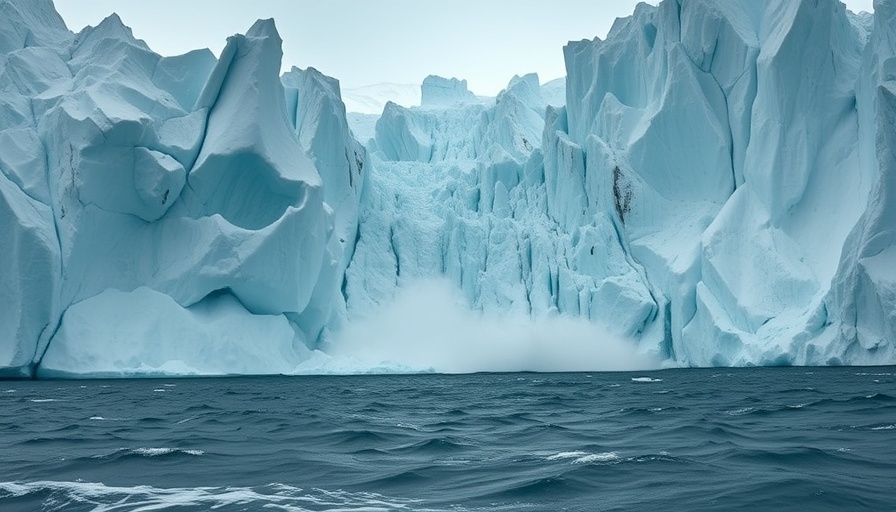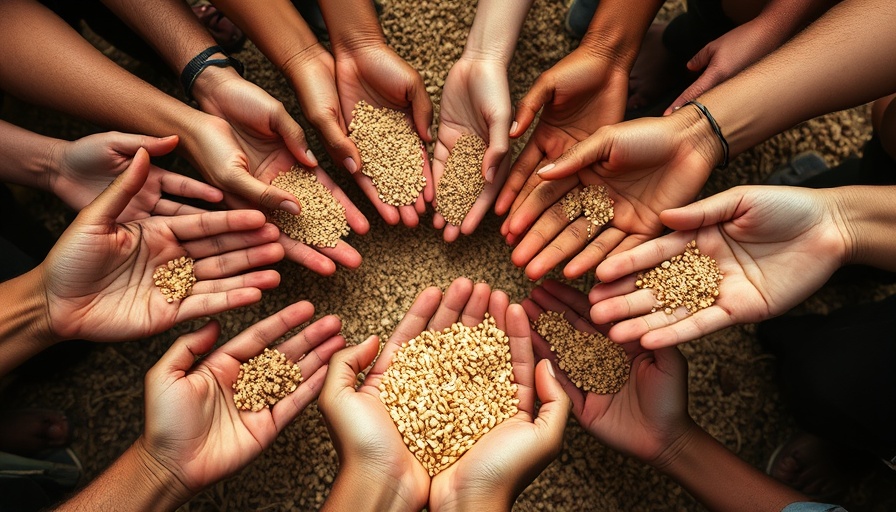
Melting Glaciers: A Looming Crisis for Freshwater Supply
In a revealing report issued by the United Nations, projected glacier melt threatens to disrupt food and water supplies for an estimated 2 billion people globally. With mountains serving as critical 'water towers,' providing between 55 to 60 percent of the annual freshwater flow, the implications are far-reaching. As highlighted in the 2025 World Water Development Report, the sustenance of countless ecosystems, agriculture, and everyday human life hangs in the balance if action is not taken.
The Interconnectedness of Climate Change and Water Security
Each year, cascading climate challenges push glacial melting rates into uncharted territory, exacerbating existing water issues faced by billions. The UNESCO report underscores that in 2022 alone, 2.2 billion people lacked access to safe drinking water, while 3.5 billion experienced poor sanitation conditions.
The report emphasizes that the acceleration of glacier melt correlates with climate change phenomena such as permafrost thawing and extreme weather events. Consequently, water flow becomes more unpredictable, impacting various sectors dependent on stable water resources.
Impacts on Agriculture: A Cause for Concern
Particular attention is drawn to the agricultural sector, where the repercussions of diminishing glacier supply are especially dire. Research suggests that two-thirds of global irrigated agriculture could face significant challenges due to receding glaciers and reduced snowpack. As the climate continues to shift, farmers and food producers must adapt to increasingly erratic water availability.
Critical Role of Mountains in the Global Water Cycle
Mountains do more than act as water sources; they influence the entire global water cycle. They store water in icy and snowy forms, which then sustains communities and ecosystems as it melts during warmer seasons. As identified by UNESCO, the disruption of this cycle could result in atmospheric imbalances that affect weather patterns worldwide, highlighting the urgent need for adaptive water management strategies.
Taking Action Now: Governance and Management Strategies
Addressing these looming water shortages requires concerted efforts in governance and management of mountain water resources. UNESCO emphasizes the need for integrated river basin management facilitated by adequate financing, scientific knowledge, and capacity-building measures. This collective action may pave the way for securing sustainable water accessibility for future generations.
What Can You Do To Help? Understanding Your Role in Water Conservation
As individuals, awareness and actions matter. Simple changes in daily practices can contribute to water conservation efforts. From reducing water waste at home to supporting policies that promote sustainable management of water resources, every small effort counts. By raising awareness about water issues, we can collectively influence the critical changes needed to safeguard our water supply.
The global community must recognize that the health of our mountains directly correlates with our water future. By acting today, we can work towards mitigating these critical challenges and securing a better tomorrow for all.
 Add Row
Add Row  Add
Add 




Write A Comment